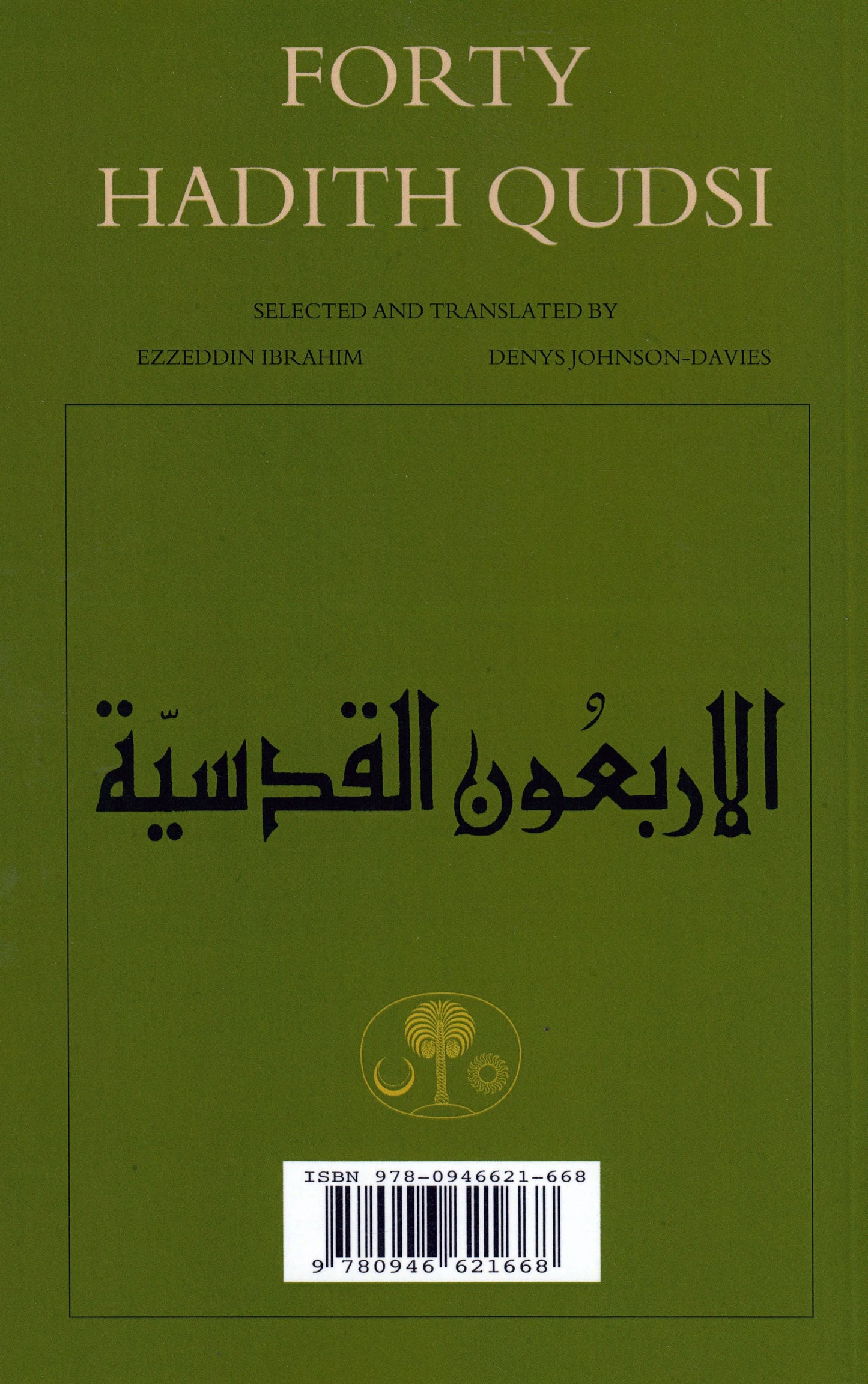The hadith qudsi are the sayings of the Prophet divinely communicated to him. The present collection has been compiled from all the available books of hadith. The forty chosen here are all well authenticated and present many of the doctrinal, devotional and ethical elements of Islam. A scholarly introduction deals fully with the subject and shows the way in which the hadith qudsi differs from the Qur’an and from the Prophetic hadith. This selection and translation has been made by the translators of An-Nawawi’s Forty Hadith. Forty Hadith Qudsi is regarded as a companion volume and has been printed in similar format with the original Arabic text given alongside the English translation.
About Author:
The Egyptian-born Ezzeddin Ibrahim, who served as a cultural adviser to the Sheikh Zayed, the founder of the UAE, was an acknowledged Islamic scholar whose expertise served the emirate well. During the course of a 50-year career, he called eloquently for inter-Muslim solidarity, articulating his message both in person - appearing as a key speaker at many international conferences - and through the written word in various publications and journals. In his adopted homeland of the UAE, he held a number of important posts at several of Abu Dhabi's key institutions.
Born in Cairo in 1928, Ibrahim studied Arabic Literature at the University of Cairo, and subsequently completed a BA in Education and Psychology at Ain-Shams University. In 1963, he graduated with a PhD in Literature from London University and accrued honorary degrees from institutions as diverse as Malaysia University and the University of Wales. For much of his early career, he worked across the Middle East, holding a number of educational and administrative positions in the fields of education and scientific research in Egypt, Libya and Syria. For the Ministry of Education in Qatar he devised a series of study programmes and compiled a number of textbooks. In Saudi Arabia, he held the eminent post of Professor Arabic Literature at Riyadh University.
During the 1970s, he was a key figure in many of the initiatives that shaped the modern emirate. He proposed the need for, and aided in, the establishment of the Cultural Foundation in Abu Dhabi, which comprises the National Archives, the National Library and the Institute of Culture and Art. On behalf of the Presidential Court, he organized a broad cultural programme in co-operation with the Women's Union. A delegated member and director general of the Zayed bin Sultan al Nahayan Charitable and Humanitarian Foundation, he also supervised a number of Islamic Studies Chairs established by the late Sheikh Zayed in several European and Asian countries.
Together with Denys Johnson-Davies - the most recognized name in Arabic literary translation - Ibrahim worked on a number of titles, including a translation of Forty Hadith Qudsi, a collection of the sayings of the Prophet Mohammed, and its companion volume, An-Nawawi's Forty Hadith. At the time of his death, the two men were working on a translation of selected passages from the Holy Quran that were to be classified by subject - "a daunting task", according to Johnson-Davies.
About Translator:
Denys Johnson-Davies is an eminent Arabic-to-English literary translator who has translated, inter alia, several works by Nobel Prize-winning Egyptian author Naguib Mahfouz, Sudanese author Tayeb Salih, Palestinian poet Mahmud Darwish and Syrian author Zakaria Tamer.
Davies, referred to as “the leading Arabic-English translator of our time” by the late Edward Said, has translated more than twenty-five volumes of short stories, novels, plays, and poetry, and was the first to translate the work of Nobel laureate Naguib Mahfouz. He is also interested in Islamic studies and is co-translator of three volumes of Prophetic Hadith. He has also written a number of children’s books adapted from traditional Arabic sources, including a collection of his own short stories, Fate of a Prisoner, which was published in 1999.
Born in 1922 in Vancouver, Canada to English parentage, Davies spent his childhood in Sudan, Egypt, Uganda, and Kenya, and then was sent to England at age 12. Davies studied Oriental languages at Cambridge, and has lectured translation and English literature at several universities across the Arab World. In 2006, he published his memoirs. In 2007, he was awarded the Sheikh Zayed Book Award "Culture Personality of the Year", a valued at about $300,000.
Davies lives between Marrakesh and Cairo.
show more



